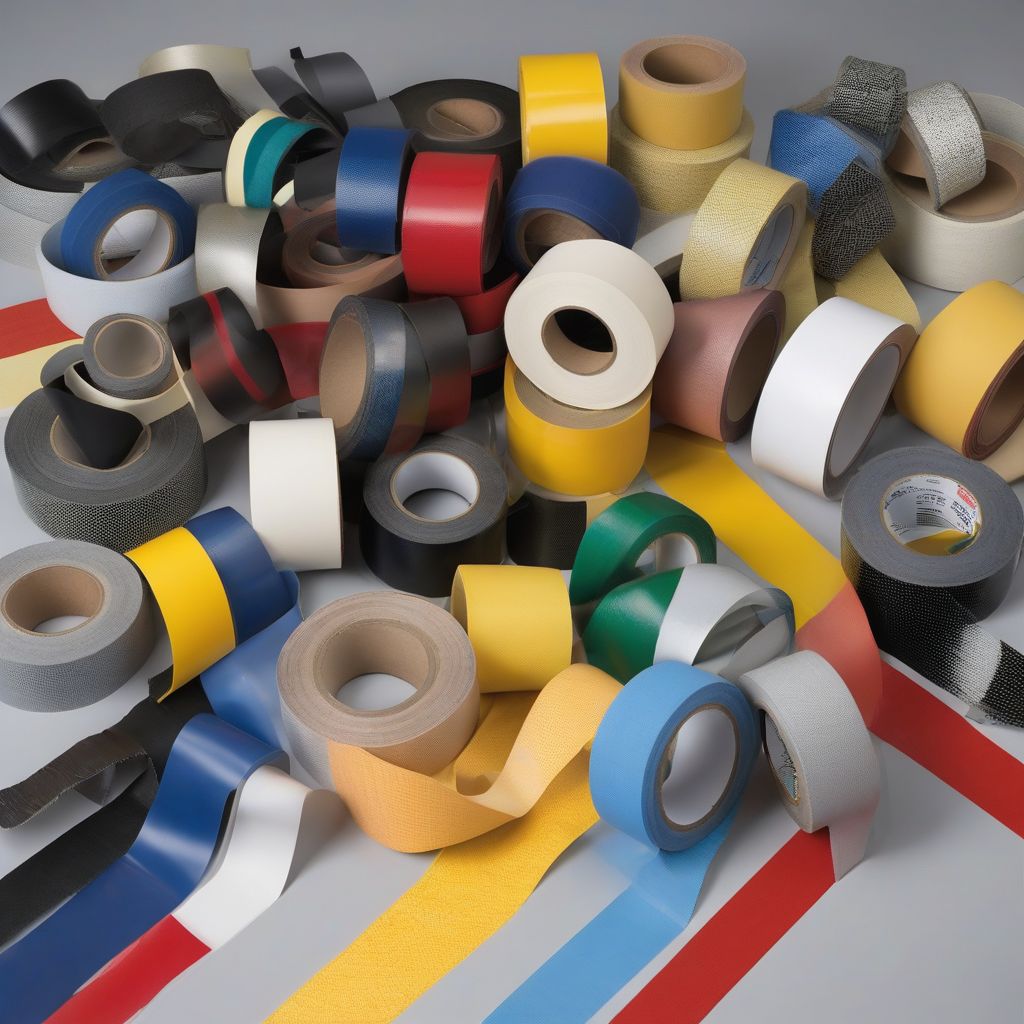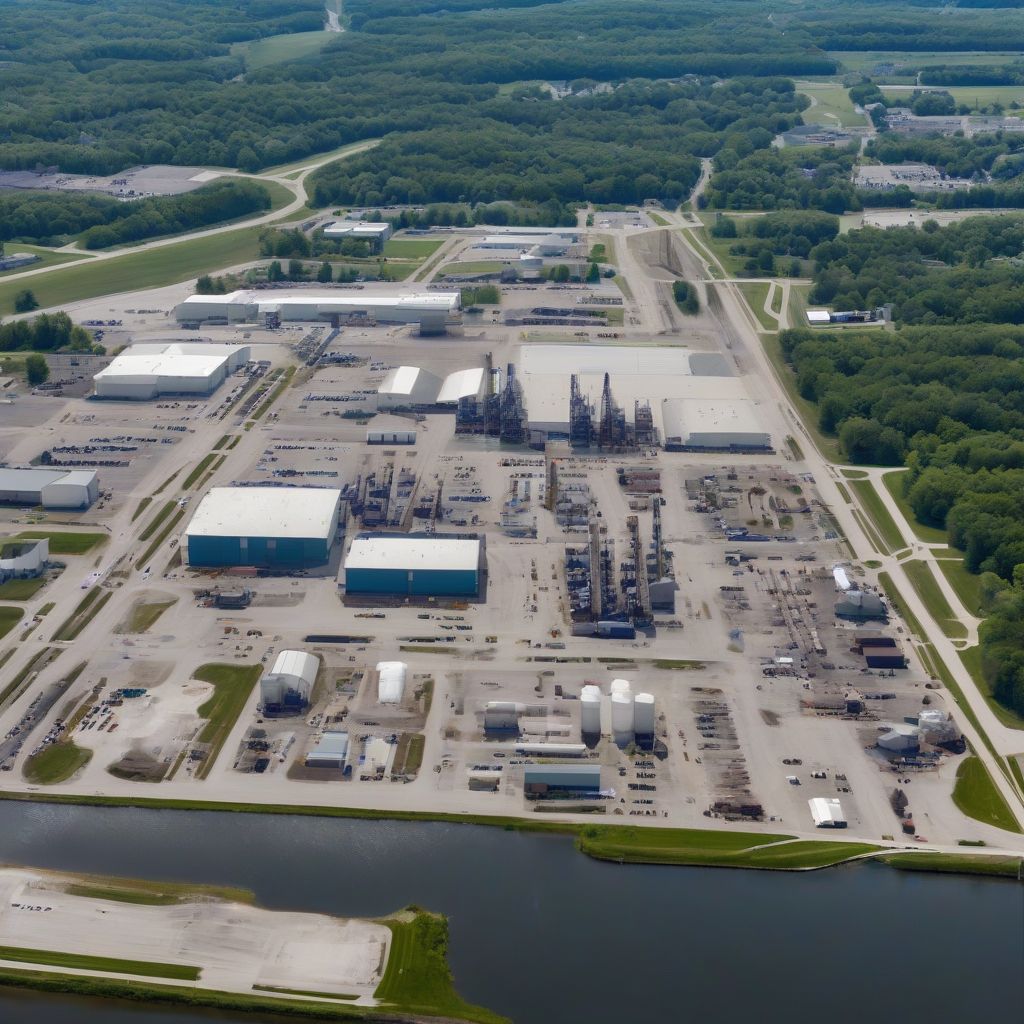Enhancing Workplace Safety and Efficiency: A Comprehensive Guide to Industrial Floor Tape

In bustling industrial environments where safety and efficiency are paramount, even the smallest details can make a world of difference. Enter Industrial Floor Tape – a seemingly simple solution with a powerful impact. This guide delves into the world of industrial floor tape, exploring its importance, various applications, and the crucial role it plays in optimizing industrial operations.
Understanding the Importance of Industrial Floor Tape
Industrial floor tape is far more than just a visual aid; it’s a critical safety and organizational tool. By clearly defining walkways, work areas, and potential hazards, industrial floor tape helps prevent accidents, streamline operations, and enhance overall workplace safety.
Why Use Industrial Floor Tape?
- Accident Prevention: Clearly marked aisles and workspaces reduce the risk of collisions between workers, forklifts, and other machinery.
- Improved Workflow: Designated areas for equipment, materials, and work processes contribute to a more organized and efficient workspace.
- Visual Communication: Different colors and patterns of floor tape convey specific information, such as hazard zones, safety equipment locations, and traffic flow directions.
- Enhanced 5S Methodology: Industrial floor tape is instrumental in implementing and maintaining 5S principles (Sort, Set in Order, Shine, Standardize, Sustain), leading to a cleaner, more organized, and productive work environment.
Types of Industrial Floor Tape and Their Applications
Industrial floor tape comes in a variety of materials, colors, and adhesive strengths to suit specific needs. Here are some common types:
1. Vinyl Floor Tape
- Durable and Versatile: Known for its resistance to abrasion, moisture, and chemicals, making it suitable for high-traffic areas.
- Variety of Colors and Patterns: Available in a wide range of colors for color-coding systems, as well as striped and checkered patterns for enhanced visibility.
2. Anti-Slip Floor Tape
- Enhanced Traction: Features a textured surface that provides superior grip, reducing slips and falls, especially in wet or oily environments.
- Ideal for Stairs, Ramps, and Walkways: Helps prevent accidents in areas prone to slips and trips.
3. Reflective Floor Tape
- Improved Visibility in Low Light: Reflects light, making it easier to see markings in dimly lit areas.
- Enhances Safety: Ideal for marking exits, fire equipment, and other critical safety points.
4. Special Purpose Tapes
- Electrostatic Discharge (ESD) Tape: Used in electronics manufacturing to protect sensitive components from static electricity damage.
- High-Temperature Tape: Withstands extreme temperatures, suitable for marking ovens, furnaces, and other hot surfaces.
 Types of Industrial Floor Tape
Types of Industrial Floor Tape
Choosing the Right Industrial Floor Tape
Selecting the appropriate industrial floor tape is crucial for its effectiveness. Consider the following factors:
- Traffic Level: High-traffic areas require more durable tapes, such as vinyl or anti-slip varieties.
- Environmental Conditions: Choose tapes that can withstand exposure to chemicals, moisture, extreme temperatures, or other relevant factors.
- Visibility Requirements: Opt for brightly colored or reflective tapes in low-light areas or for critical safety markings.
- Surface Type: Ensure the tape’s adhesive is compatible with the floor surface to ensure proper adhesion and prevent peeling.
Best Practices for Installation and Maintenance
Proper installation and maintenance are essential for maximizing the lifespan and effectiveness of industrial floor tape:
- Surface Preparation: Thoroughly clean the floor surface to remove dust, debris, and grease before applying the tape.
- Proper Application: Apply the tape evenly with firm pressure to ensure good adhesion. Use a roller or squeegee for larger areas.
- Regular Inspection: Inspect the tape regularly for signs of wear and tear, damage, or reduced adhesion. Replace damaged sections promptly.
- Proper Cleaning: Use appropriate cleaning methods and agents that won’t degrade the tape’s adhesive or surface.
The Future of Industrial Floor Tape
As technology advances, so too does industrial floor tape. Here are some emerging trends:
- Custom-Printed Tapes: Companies can now order tapes printed with specific logos, safety messages, or directional arrows for enhanced branding and communication.
- Smart Floor Tapes: Integrated sensors and RFID technology can be embedded into floor tapes to track inventory, monitor equipment, or even provide real-time safety alerts.
Conclusion
Industrial floor tape is an indispensable tool for enhancing workplace safety, organization, and efficiency. By carefully choosing the right tape for specific needs and implementing proper installation and maintenance practices, businesses can reap the numerous benefits of this versatile solution. As technology continues to evolve, we can expect even more innovative and intelligent floor tape solutions to emerge, further revolutionizing the way industrial facilities operate.


Leave a Comment